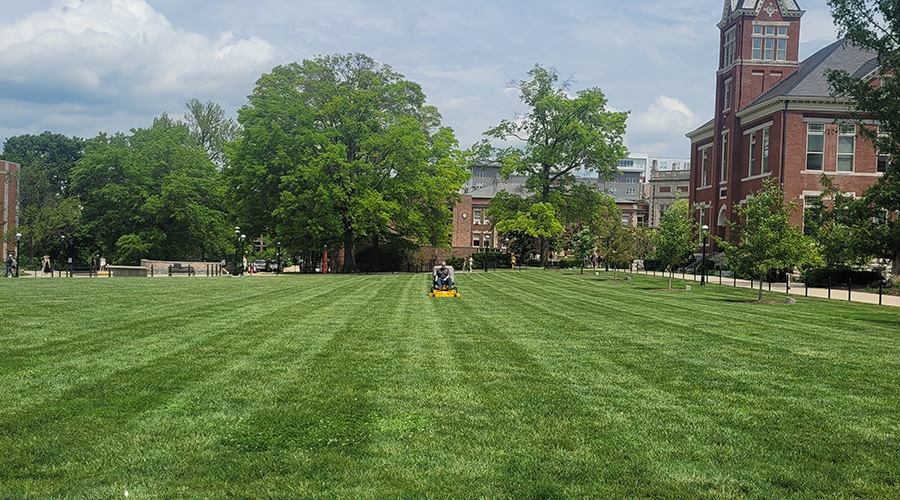Are Organic Fertilizers Worth the Extra Cost?
Organic fertilizers seem to generate a great deal of attention in sustainability discussions. These fertilizers are more expensive than synthetic fertilizers, but the reduced impact on the environment and the improved long-term health of landscapes often can justify the higher cost.
In theory, using an organic fertilizer now should reduce its need 5-10 years later because organics help create microorganisms in the soil, which then would supply the plants with the necessary levels of nitrogen-phosphorous-potassium, Feist says.
Feist has implemented a pilot program at American University that uses only organic fertilizer on a high-traffic turf area. The program has been successful, but some drawbacks have surfaced. For example, broadleaf weeds are creeping in, due to the lack of a broadleaf herbicide; Feist has yet to identify an effective organic broadleaf control. Also, the turf area does not look like a perfectly manicured lawn.
“We actually had pressure from both students and faculty to come up with a different approach,” Feist says of the pilot. “That worked to our advantage because then we were able to say, ‘Well, here’s an option for a solution, but here are some drawbacks that we might experience.’”
Campus occupants have responded well to the pilot program, and Feist says American University could shift to a completely organic approach in the next five years.
Wright also uses organic fertilizers at Mohonk Mountain House, and most of them are granular. Crews apply only organics in planting beds and landscapes, and they use both organic and synthetic fertilizers on turf.
The fertilizers include sewage-based compost for putting greens, fish emulsions, and byproducts of animal-feed production and brewery and poultry operations. The environmental benefit of organics directly relates to properly applying the product, Wright says.
No matter the type of chemicals crews are applying, they need to consult the manufacturer label to determine the proper personal protective equipment to wear.
Says Wright, “We have plans in place for communication with staff, guests and the grounds crew who have the highest chance of having contact with the applied pesticides.”
Related Topics:














